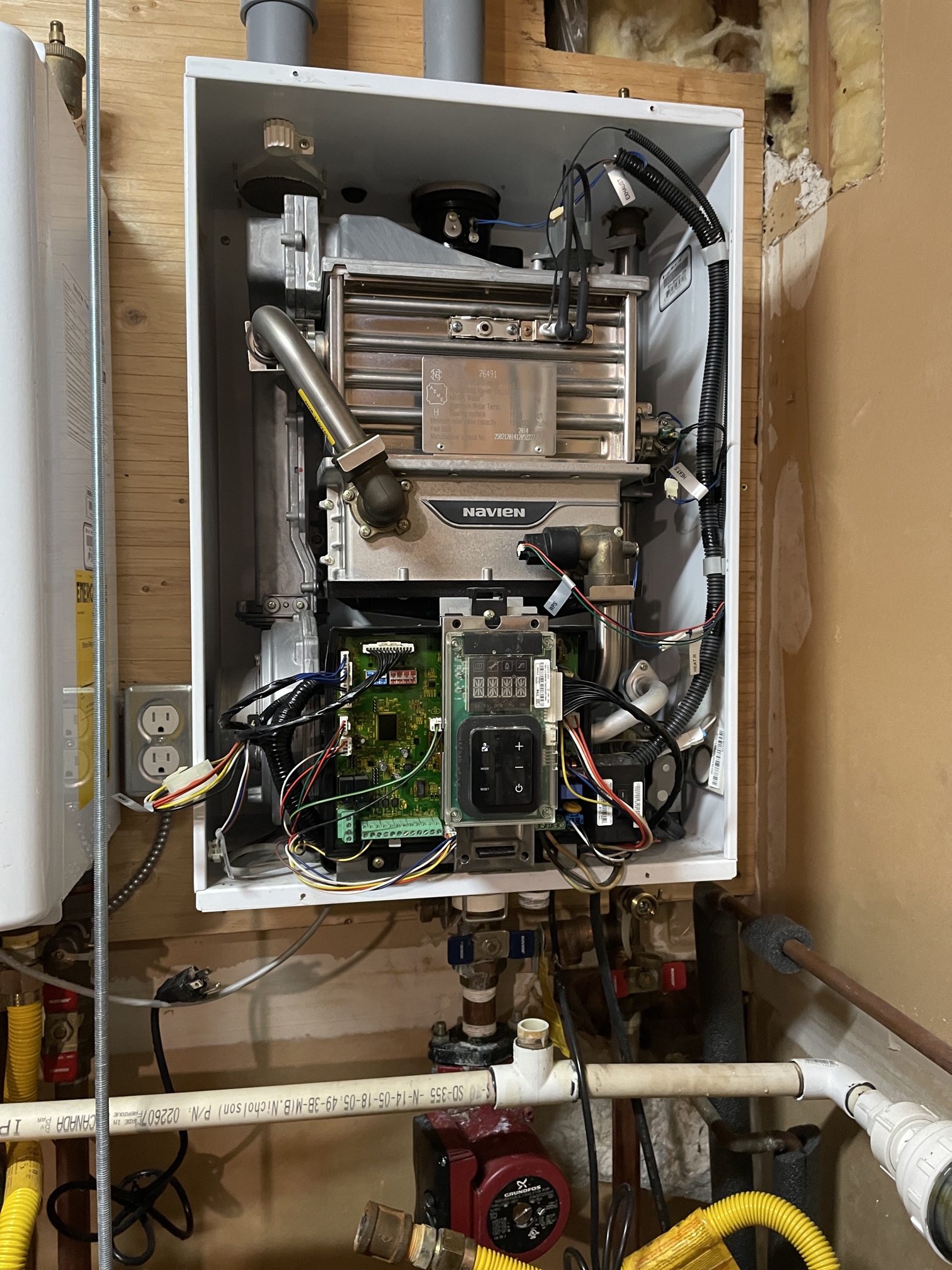
There’s nothing quite as off-putting as turning on your hot water and being met with a foul odour, often described as rotten eggs or sulphur. It’s a common plumbing problem that can be embarrassing, but more importantly, it can be a sign of an underlying issue with your water heater.
At Vision Plumbing Heating Cooling, we’ve seen and fixed it all. Here’s our guide to understanding why your hot water smells, what you can do about it, and how to prevent it from happening again.
The Science Behind Stinky Hot Water
That rotten egg smell is almost always caused by a harmless gas called hydrogen sulphide. This gas is produced when certain bacteria, known as sulphur-reducing bacteria (SRB), feed on sulphur compounds found naturally in your water. These bacteria thrive in the warm, low-oxygen environment of a hot water tank.
While the smell is unpleasant, the bacteria themselves are typically not a health risk. However, the odour can indicate a problem with your water tank or your water source and should be inspected ASAP.
Common Causes of Smelly Hot Water
The smell is coming from your hot water, which means the issue is likely within your hot water tank. If your cold water also smells, the problem is usually with your municipal or well water supply and will require a different solution.
Here are the most common culprits for a smelly hot water tank:
- Sulphur-Reducing Bacteria: This is the primary cause. Bacteria grow in the tank and produce hydrogen sulphide gas as a byproduct. This is especially common if your water tank hasn’t been used for a while (like after a long vacation) or if the thermostat is set too low, creating an ideal breeding ground.
- The Anode Rod: Your water heater has a sacrificial anode rod that attracts corrosive elements to protect the tank’s lining. If this rod is made of magnesium or aluminum, it can react with sulphur in the water, creating hydrogen sulphide gas. A corroded anode rod is a very common source of the smell.
- Sediment Buildup: Over time, sediment and minerals can settle at the bottom of your tank, providing a perfect home for bacteria to grow.
DIY Fixes & When to Call a Pro
Before you panic, there are a few things you can try. If these don’t work, it’s time to call in the professionals.
Important Safety Note: Never attempt to open or work on the pressurized internal components of your water heater yourself. This is extremely dangerous and should only be done by a licensed technician.
Quick Smelly Water Fixes You Can Try
- Run the Hot Water: If you’ve been away for a while, the water in your tank may have become stagnant. Run all hot water faucets for a few minutes to flush out the old water.
- Turn Up the Heat: Temporarily increasing your water heater’s temperature to 140°F (60°C) for a few hours can kill off the bacteria. Caution: Be extremely careful as this can cause scalding. Lower the temperature back to 120°F (49°C) afterward to prevent burns and save energy.
When to Call a Plumber
If the smell persists, it’s a sign of a deeper issue that requires professional attention. A licensed plumber can:
- Replace the Anode Rod: A plumber can replace a problematic magnesium or aluminum anode rod with a zinc or powered rod, which won’t cause the same chemical reaction with your water.
- Flush the Tank: A full professional flush can remove the built-up sediment that is providing a home for bacteria. This is a complex process best left to a professional to ensure all sediment is removed safely.
- Recommend a Water Heater Replacement: If your hot water tank is old, a professional may recommend a new unit. Replacing an aging tank is often more cost-effective in the long run than paying for repeated repairs. At Vision, we specialize in everything from traditional hot water tanks to modern tankless water heaters.
Hot Water Smell Prevention & Long-Term Solutions
The best way to deal with smelly hot water is to prevent it in the first place.
- Annual Maintenance: Regularly flushing your hot water tank is crucial for removing sediment and can extend the life of your unit.
- Consider a Tankless Water Heater: Tankless water heaters don’t store water, which eliminates the stagnant environment where bacteria thrive. This makes them a great solution if you’re consistently dealing with a smelly hot water tank.
- Keep Water Flowing: If you’re going on a long vacation, consider having a friend or neighbour run your hot water for a few minutes every couple of weeks to prevent stagnation.
No one should have to deal with a bad-smelling water supply. Whether it’s a simple fix or a serious problem with your tank, the expert plumbers at Vision are ready to help. We provide reliable residential plumbing services and commercial plumbing services, including 24/7 emergency plumbing services when you need it most.
If you’re ready to get rid of that foul odour, contact us today. Our team is available for emergency plumbing services in Kelowna and the Okanagan (including West Kelowna, Summerland, Peachland, Penticton, and Vernon).
FAQs About Smelly Hot Water
What causes a rotten egg smell in my hot water?
The rotten egg smell is most commonly caused by hydrogen sulphide gas, which is produced by sulphur-reducing bacteria that thrive in the warm, low-oxygen environment of a hot water tank. This is often linked to the water’s natural mineral content or a deteriorating anode rod inside the tank.
Is it dangerous if my hot water smells bad?
While the smell is very unpleasant, the bacteria that cause it are typically not a health risk. However, the odour can be a sign of an underlying issue with your water heater or water supply that should be addressed by a professional.
Can a water heater flush fix the smell?
Yes, in some cases, a professional water heater flush can solve the problem by removing the sediment where the bacteria live. However, if the smell returns, the issue may be a corroded anode rod or a deeper problem with your water source.
What is an anode rod and how is it related to smelly water?
The anode rod is a component in your water heater that sacrifices itself to protect the tank from corrosion. If it’s made of magnesium or aluminum, it can react with sulphur in the water to produce the smelly hydrogen sulphide gas. Replacing it with a zinc or powered anode rod can often solve the problem.
Does a tankless water heater smell?
It is very unlikely for a tankless water heater to develop a smell. Unlike a traditional tank, a tankless unit heats water on demand and doesn’t store it, which eliminates the stagnant environment where the bacteria that cause the smell can thrive.



